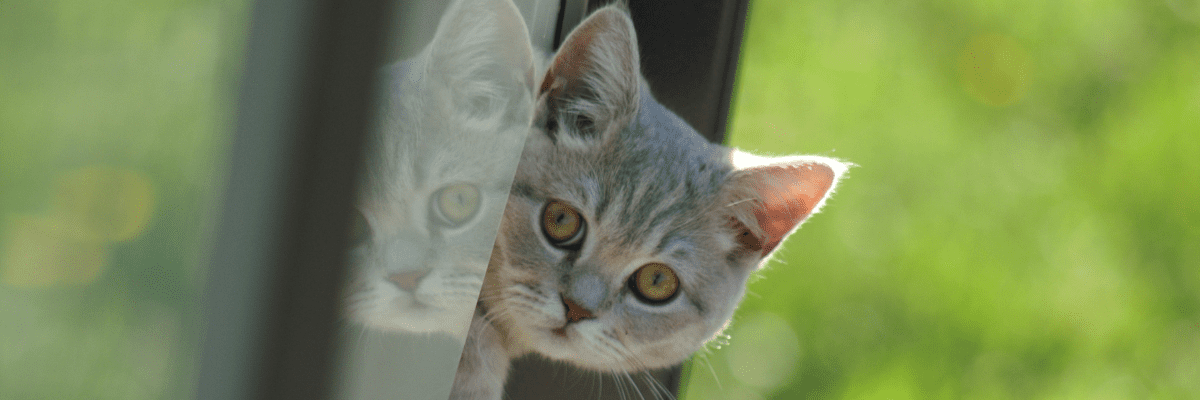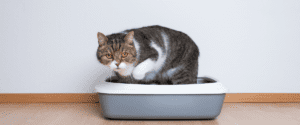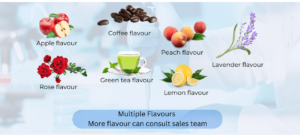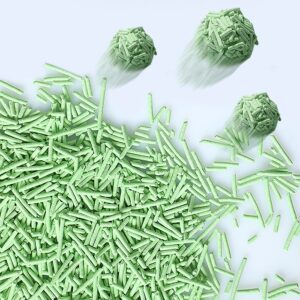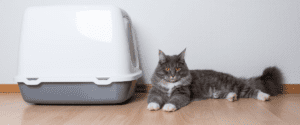Are you looking for eco-friendly alternatives to traditional cat litter? Plant-based cat litter may be the perfect solution. We’ll explore the benefits of switching to plant-based cat litter, types of plant-based cat litter, important pros and cons to consider, and how to select the best choice for your feline friend.
Overview of Cat Litter
Before we dive into plant-based cat litter, let’s talk about cat litter itself. After all, it has become an essential part of life with cats. Cat owners use some form of “waste disposal system” for their cats – whether that’s a litter box, a sandpit, or something else.
The most common type of pet litter is clay-based. Clay-based litters are the most affordable option and provide excellent odor absorption. However, clay-based cat litter contains silica dust, which can be harmful to humans and cats if inhaled. It also doesn’t break down easily when disposed of in the landfill.
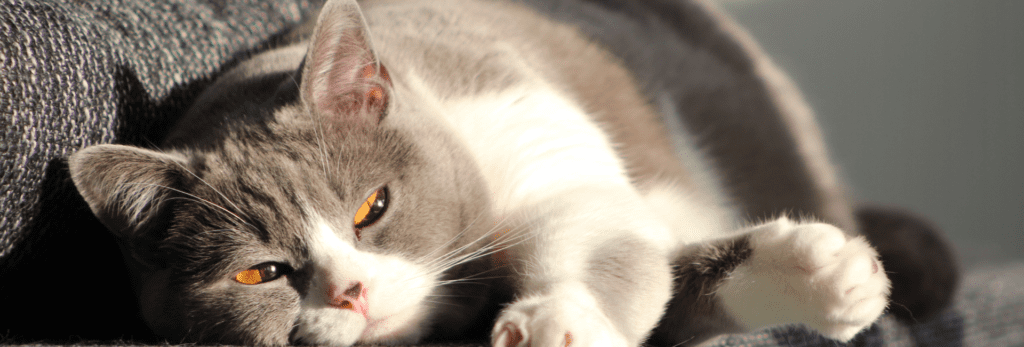
Benefits of Switching to Plant-Based Cat Litter
Plant-based cat litters are made from natural materials such as coconut shells, wood pellets, and corn cob pieces. These biodegradable plant materials possess impressive odor-absorbing properties and are much safer for people and pets than clay-based cat litters. Plant-based cat litters are more expensive than conventional products but are worth it in the long run in terms of health and environmental impact.
Types of Plant-Based Cat Litter
Let’s take a look at the different types of plant-based cat litter available on the market.
Coconut-based Cat Litter
Coconut-based cat litter is made from finely ground chips of coconut shell. This product is an excellent absorbent of odor and liquid, making it an ideal choice for pet owners who have an extremely smelly cat. The odor control capabilities of this type of litter make it a popular choice among cat owners.
Wood Pellet-Based Cat Litter
Wood pellet-based cat litter is made from sawdust and wood pellets. Wood pellets are highly absorbent and offer superior odor control compared to other types of litter. Wood pellet-based litters are very dust-free, making them ideal for cats with allergies or asthma.
Corn-Based Cat Litter
Corn-based cat litter is made from recycled corn cob pieces. Corn-based cat litter is excellent at absorbing odors and is non-toxic. It’s also dust-free, making it perfect for cats with allergies or asthma. Corn-based cat litter is an excellent choice for people looking for an environmentally-friendly litter.
Pros and Cons of Plant-Based Cat Litter
When considering the advantages and disadvantages of switching to plant-based cat litter, there are several important points to keep in mind.
Pros
- Environmentally friendly: Plant-based cat litter is much more eco-friendly than traditional clay-based cat litter. It is biodegradable, non-toxic and is made from natural materials.
- Superior odor control: Plant-based litters are known for their superior odor control compared to clay-based litters.
- Dust-free: Plant-based litters are dust-free, making them ideal for cats with allergies or asthma.
Cons
- Expensive: Although plant-based cat litters are more expensive than traditional clay-based litters, they are often worth the higher price due to their eco-friendliness and superior odor control.
- Not as clumping: Plant-based litters are not as good at forming clumps as clay-based litters, making them difficult to scoop.
How to Choose the Best Plant-Based Cat Litter
When choosing the best plant-based cat litter for your feline friend, there are several considerations to keep in mind.
Considerations
- Odor control: Choose a litter that offers superior odor control – some plant-based litters offer better odor control than others.
- Dust-free: If your cat has allergies or asthma, choose a dust-free litter such as wood pellet-based or corn-based cat litter.
- Clumping: Avoid litters that don’t efficiently form clumps – these can be difficult to scoop.
Cost
The cost of plant-based cat litters varies depending on the type of litter and the size of the package. Generally speaking, plant-based cat litters cost more than traditional clay-based litters – but they are worth the extra expense for their superior odor control and environmental benefits.
Conclusion
Switching to plant-based cat litter is an important step for cat owners looking to reduce their environmental footprint. Plant-based litters offer superior odor control and are much safer for people and pets than clay-based litters. When selecting the best plant-based litter for your cat, keep in mind important considerations such as odor control, dust-free options, and clumping capabilities. While plant-based cat litters are more expensive than traditional litters, they are well worth the additional cost in terms of health and environmental impact.
